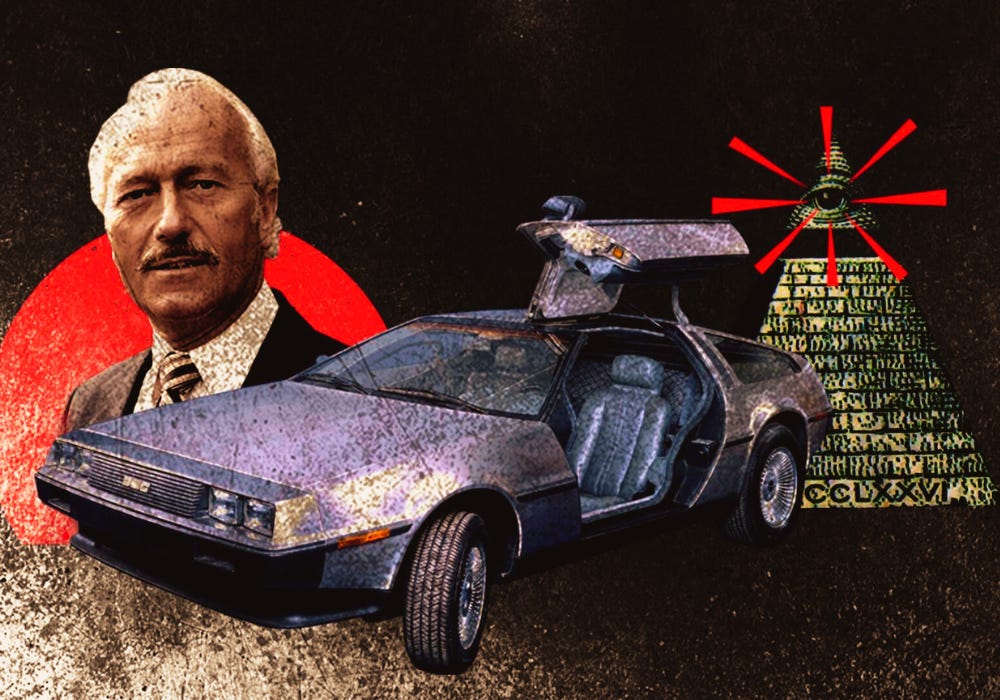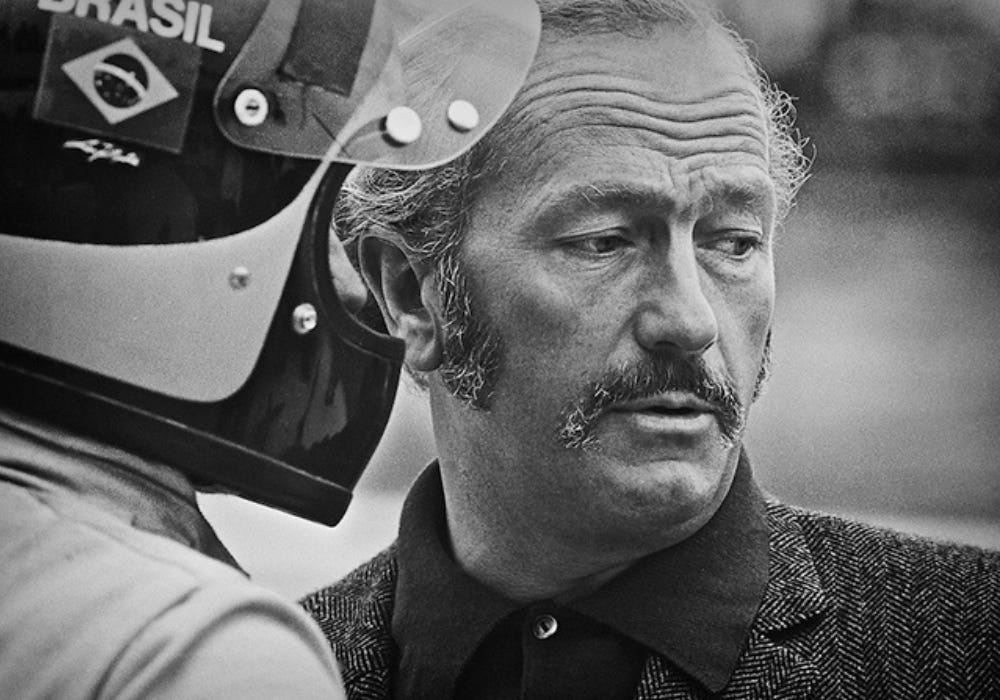In the annals of automotive history, few figures stand as prominently as Colin Chapman, the visionary behind Lotus Cars. His innovations reshaped racing, but it's the enigma surrounding his demise that has captured imaginations for decades.
The question lingers: Did Chapman, in a twist worthy of a thriller, fake his own death? This exploration seeks to separate fact from fiction, delving into the life of the man and the mystery that continues to surround him.
Background: Who Was Colin Chapman?
Colin Chapman, born in 1928, was not just a name but a force in the automotive world. As the founder of Lotus Cars, he revolutionized car design and engineering. His passion for lightweight, high-performance vehicles led to iconic models that dominated racetracks globally.
But beyond the cars, Chapman was a figure of intrigue. His dealings, both in business and personal spheres, were often shrouded in secrecy. Some lauded him as a genius, while others questioned his methods. Yet, regardless of the perspective, his impact on the automotive industry was undeniable.
The 1970s and early 1980s were tumultuous times for Lotus Cars. Financial troubles, coupled with Chapman's unexpected death in 1982, left many questions unanswered. Was it a natural death, or was there more to the story?
As we delve deeper into Chapman's life and the circumstances of his passing, we aim to provide a clear, unbiased view. The objective is not to sensationalize but to understand the man, the myth, and the enduring mystery of Colin Chapman.
The Circumstances of His Death
Colin Chapman's death in December 1982 came as a shock to many. The founder of Lotus Cars, a man of immense influence in the automotive world, was suddenly no more. The official records state a heart attack as the cause, but the abruptness raised eyebrows.
The days leading up to his demise were seemingly ordinary. Chapman was involved in his usual business affairs, with no indication of any health issues. However, people close to him noticed that he was becoming more stressed, especially about Lotus's money problems. The weight of company debts and looming legal battles might have taken a toll on his health.
However, the absence of a comprehensive medical report left room for speculation. While heart attacks can be sudden, the lack of prior symptoms in Chapman's case was puzzling. This void of concrete evidence fueled the rumors that perhaps his death wasn't as straightforward as it seemed.
In the end, while the official narrative points to natural causes, the suddenness of Chapman's departure and the subsequent mysteries surrounding Lotus Cars have left many questions unanswered. Chapman's death reminds us how unpredictable life is, making the truth hard to find.
Theories and Speculations
The human mind often seeks patterns, especially in the face of ambiguity. Chapman's death, given its sudden nature and the stature of the man, inevitably led to various theories. Some believed in the official narrative, while others sought alternative explanations.
One prevalent theory suggested that Chapman faked his own death to escape the mounting pressures. Proponents pointed to the financial troubles of Lotus Cars and potential legal repercussions as motives. They said that Chapman, being smart and having money, could plan a disappearance if he felt trapped.
Yet, another group believed in external foul play. Some people thought that Chapman's new ideas upset others in the car industry. Could a rival or a disgruntled associate have had a role in his sudden death?
While these theories offer intriguing narratives, they lack concrete evidence. Speculation, no matter how compelling, cannot replace facts. When examining various theories, it's important to be discerning and prioritize verified information.
Evidence Supporting the Official Narrative
For every theory suggesting foul play or a staged death, there's evidence supporting the official narrative. Chapman's heart attack, while sudden, isn't an isolated incident in the annals of medical history. Many individuals, even those without prior symptoms, have faced similar fates.
Doctors often mention that the stresses in Chapman's life could be triggers. The strain of managing a company in financial turmoil, coupled with personal challenges, can exacerbate underlying health issues. Furthermore, those close to the person have always supported the idea of a heart attack. They have ignored any suggestions of wrongdoing or dishonesty.
In addition, records from that time support the heart attack cause. These records include statements from the doctors and the coroner's report. While these documents might not quell all doubts, they provide a solid foundation for the official narrative.
In the quest for truth, it's essential to weigh the evidence judiciously. While the allure of conspiracy theories is undeniable, the facts, as they stand, point to a tragic, natural end for Colin Chapman.
Discrepancies and Unanswered Questions
The narrative of Colin Chapman's death, while largely accepted, isn't without its discrepancies. These inconsistencies, though minor, have provided ample fodder for those skeptical of the official account. The aim here isn't to fan the flames of conspiracy but to address these questions head-on.
One notable discrepancy lies in the accounts of Chapman's last days. While some reports suggest he was in good spirits, others hint at a man burdened by the weight of his company's troubles. Did Chapman not know about his health issues? Or did he hide his concerns? Conflicting accounts raise questions.
Furthermore, the absence of a detailed autopsy report has been a point of contention. For a figure of Chapman's stature, the lack of a comprehensive medical examination post-mortem seems unusual. This omission has led many to wonder if there was something to hide.
In addressing these discrepancies, it's vital to approach them with caution. While they raise valid questions, they don't necessarily discredit the official narrative. They serve as reminders that history, especially when shrouded in mystery, is rarely black and white.
The Impact on Lotus Cars
The death of a visionary often leaves a void, and in the case of Lotus Cars, Chapman's passing was a significant blow. His leadership and innovative spirit were the driving forces behind the company's success. The aftermath of his death, therefore, was a period of uncertainty and adjustment.
In the immediate years following Chapman's death, Lotus Cars faced a series of challenges. Financial woes, leadership changes, and a shifting automotive landscape put the company's resilience to the test. The absence of Chapman's guiding hand was palpable, with many wondering if Lotus could retain its iconic status.
However, adversity often breeds resilience. Under new leadership, Lotus began a slow but steady process of reinvention. Despite the difficult road, the company stayed committed to innovation and performance.
Reflecting on this period, it's evident that while Chapman's death was a setback, it wasn't the end for Lotus Cars. Chapman laid a strong foundation, and the company's ability to handle challenges shows its legacy.
The Legacy of Colin Chapman
Beyond the mysteries and controversies, Colin Chapman's true legacy lies in his contributions to the automotive world. His vision for Lotus Cars and his relentless pursuit of innovation have left an indelible mark on the industry.
Chapman's philosophy of "simplify, then add lightness" revolutionized car design. His emphasis on lightweight construction and aerodynamics led to cars that were not only fast but also efficient. This approach, while initially met with skepticism, soon became the gold standard in racing and automotive design.
Moreover, Chapman's influence extended beyond Lotus. His ideas and innovations were adopted by other manufacturers, reshaping the automotive landscape. Today, many of the principles he championed are considered foundational in car design and engineering.
In conclusion, while the circumstances of Chapman's death may remain a topic of debate, his legacy is undeniable. He was a visionary, a trailblazer, and above all, a testament to the power of innovation and determination.
Modern Takes on the Mystery
As time has passed, the mystery surrounding Colin Chapman's death has not waned. New generations, armed with the power of the internet, have brought fresh perspectives and theories to the table. The digital age has allowed for a more thorough examination of the facts, as well as the propagation of various narratives.
People from all over the world use online forums and social media to discuss the Chapman mystery. Some people have done their own investigations and found new details and connections that were missed before. This collective sleuthing has added new layers to the story, making it as relevant today as it was in the 1980s.
However, it's important to approach these modern takes with a critical eye. Because information spreads quickly online, it's important to separate truth from lies. While the digital age has provided us with new tools for exploration, it has also highlighted the need for responsible and discerning consumption of information.
Ethical Considerations in Questioning a Person's Death
Questioning the circumstances surrounding a person's death is a delicate matter. It requires a careful balancing of curiosity and respect, with the latter always taking precedence. The ethical implications of suggesting that someone may have faked their death are significant, as it can cause distress to family and friends, and potentially harm the individual's legacy.
As journalists and writers, it is important to handle sensitive topics carefully. We should make sure our work is based on verified facts and reliable sources. Sensationalism and unfounded claims have no place in responsible journalism. The goal should always be to inform and enlighten, rather than to shock or provoke.
Colin Chapman was a real person with a real family, but his death is mysterious. Any discussion or investigation into his death should be conducted with the utmost respect and integrity, honoring his contributions to the automotive world and preserving the dignity of his memory.
Conclusion
The life and death of Colin Chapman is a tale of innovation, success, and mystery. His contributions to the automotive world are undeniable, having shaped the industry in ways that are still felt today. The circumstances surrounding his death, while puzzling, should not overshadow his legacy.
To understand why Chapman died, approach the topic with balance and respect. Conspiracy theories and sensational stories are tempting but can harm the person and truth.
In conclusion, while the mystery of Colin Chapman's death may never be fully resolved, it serves as a reminder of the complexities and uncertainties of life. Responsible journalism and ethical storytelling are important. They highlight the truth as the ultimate goal, even if it's hard to find.






In photos, Chapman fits a profile for the British spy. Handsome, well-groomed, detail-oriented and able to travel world-wide. Perhaps his foundering company made him a potential liability to others because he would be open some level of control if he had to borrow funds to keep Lotus afloat.
1st !